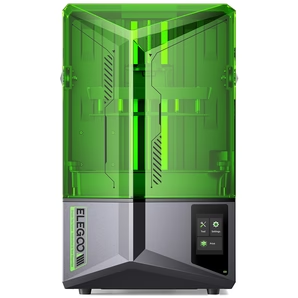In the intricate web of global commerce, supply chains are the lifelines that sustain the flow of goods from producers to consumers.
However, traditional logistics networks face numerous challenges, including inefficiencies, high costs, and inflexibility.
Enter 3D printing – a technology poised to redefine the norms of manufacturing and distribution.
At the heart of this revolution is the ELEGOO Saturn 3 Ultra 12K Resin 3D Printer, a marvel of modern engineering that epitomizes the transformative impact of 3D printing on supply chains.
3D Printing: A Catalyst for Supply Chain Innovation
3D printing, also known as additive manufacturing, introduces a paradigm shift in how products are designed, produced, and delivered.
By building objects layer by layer directly from digital models, 3D printing eliminates the need for complex tooling and molds, enabling more agile and cost-effective manufacturing processes.
This shift has profound implications for supply chain innovation, allowing companies to respond more swiftly to market changes and customer demands.
Reducing Lead Times and Inventory Costs

One of the most significant benefits of 3D printing in logistics is the dramatic reduction in lead times and inventory costs.
Traditional manufacturing methods often require weeks or even months to move from design to production, with the additional time needed for shipping products from factories to distribution centres and retailers.
The ELEGOO Saturn 3 Ultra 12K Resin 3D Printer, with its high-resolution printing capabilities and advanced technology, enables businesses to produce certain goods on-demand, closer to the point of consumption.
This not only accelerates the production cycle but also minimizes the need for extensive inventories, reducing storage costs and the risk of obsolescence.
Enhancing Supply Chain Flexibility and Resilience
The global pandemic highlighted the fragility of international supply chains, underscoring the need for greater flexibility and resilience. 3D printing offers a compelling solution by decentralizing production.
Rather than relying on a limited number of large factories, companies can distribute smaller, more versatile 3D printers like the ELEGOO Saturn 3 Ultra across various locations.
This decentralization allows for more localized production strategies, reducing dependence on long-distance transportation and mitigating the impact of regional disruptions on the global supply chain. Of course, this all depends on the volume of output.
Customization at Scale
Another revolutionary aspect of 3D printing is its ability to facilitate mass customization. Traditional manufacturing methods are optimized for mass production, where producing individualized products can be prohibitively expensive.
The ELEGOO Saturn 3 Ultra, with its precise 12K mono LCD and 19×24 microns XY resolution, demonstrates how 3D printing can produce highly customized products without significant cost increases.
This capability enables companies to offer personalized products, meeting the growing consumer demand for customization and further transforming supply chain dynamics.

Environmental Benefits and Sustainability
Sustainability is increasingly becoming a cornerstone of supply chain management, with companies seeking to minimize their environmental impact.
3D printing contributes to these efforts by reducing waste through more efficient material use and enabling the use of eco-friendly materials.
The ELEGOO Saturn 3 Ultra's advanced technology, including its plug-in air purifier with an activated carbon filter, reflects a broader industry trend towards more environmentally conscious production practices.
By streamlining production processes and reducing the need for transportation, 3D printing also decreases carbon emissions, aligning supply chain operations with sustainability goals.
The Future of Logistics with 3D Printing
As 3D printing technologies continue to evolve, their impact on supply chains is expected to grow exponentially. The ELEGOO Saturn 3 Ultra 12K Resin 3D Printer exemplifies the cutting-edge capabilities that are making these transformations possible.
From enhancing efficiency and reducing costs to enabling customization and improving sustainability, 3D printers are set to reshape the foundations of global logistics.
In conclusion, the intersection of 3D printing and supply chain management marks a significant milestone in the evolution of global commerce.
By leveraging the capabilities of advanced 3D printers like the ELEGOO Saturn 3 Ultra, businesses can revolutionize their logistics operations, driving innovation, efficiency, and sustainability.
As we look to the future, it is clear that 3D printing will play a pivotal role in shaping the next generation of supply chain strategies, offering a glimpse into a more agile and responsive global market landscape.





















































































































